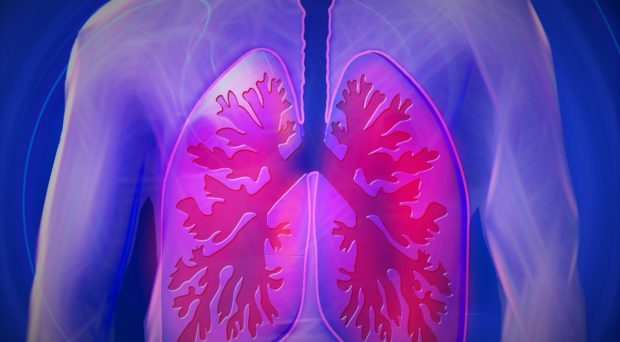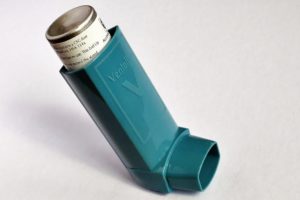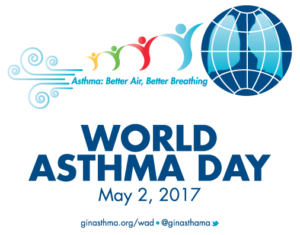
World Asthma Day, which this year falls on 2nd May, is organized every year by the Global Initiative for Asthma (GINA) to raise awareness and improve asthma care around the world. May is also National Asthma and Allergy Awareness Month in the USA, chosen by the Asthma and Allergy Foundation of America (AAFA) because it’s the peak season for asthma and allergy sufferers. It is therefore the perfect time to educate people about these conditions. To mark both of these occasions, let’s take a look at some of the asthma studies and clinical trials registered in the ISRCTN registry.
An introduction to asthma

Asthma is a lung condition that causes breathing difficulties such as wheezing, breathlessness and cough. Unfortunately, there is currently no cure but there are treatments to keep the symptoms under control. The most common treatments are reliever and preventer inhalers. Reliever inhalers contain a medicine called a short-acting beta2-agonist and are used to relieve symptoms quickly. Preventer inhalers contain inhaled steroid medication and are used several times a day to prevent symptoms occurring.
New devices
Asthma can usually be controlled with these inhalers, but for some patients symptoms aren’t well controlled, so further treatments, including new devices, are in the pipeline.
The Temperature Controlled Laminar Airflow (TLA) or Airsonett® device has been developed to filter the air in the asthma patient’s bedroom, removing allergy particles to allow their lungs to ‘rest’ overnight. This device is being tested in the LASER study across the UK (protocol published in Trials).
CPAP devices which are used to treat obstructive sleep apnea could also have a beneficial effect on asthma
And a study from the Royal Victoria Infirmary and Freeman Hospital (UK) looks at whether continuous positive airway pressure (CPAP) devices, which are used to treat obstructive sleep apnea, could also have a beneficial effect on asthma.
Could devices like these one day be as common a part of asthma treatment as the humble inhaler?
Asthma attacks
Occasionally, asthma symptoms can gradually or suddenly get much worse. This is called an asthma attack. Severe attacks may require hospital treatment and, in extreme cases, can even lead to death, so there is a great need for new treatments for patients with more severe asthma.
For example, there’s a new type of medication called omalizumab (brand name Xolair) that is given as an injection to prevent severe asthma attacks triggered by allergies. Its effects on the on the body’s immune system are currently being assessed in the SoMOSA study based at Southampton General Hospital (UK).
Bronchial thermoplasty may reduce asthma attacks but the long-term benefits and risks are not yet known
Bronchial thermoplasty is another relatively new treatment that is very occasionally used for severe asthma. It’s a procedure that uses radio waves to heat the lining of the lungs, destroying some of the muscle tissue that constricts (gets narrower) during an asthma attack. It was tested in a multicenter study run from Glenfield Hospital (UK). There’s evidence suggesting that this procedure may reduce asthma attacks but the long-term benefits and risks are not yet known, and there’s a small risk it could even trigger an asthma attack and other complications.
Both of these new treatments are currently used when asthma symptoms aren’t well controlled with inhalers, but could asthma symptoms also be kept under control with lifestyle changes?
Diet and exercise

Alongside traditional medical treatments, dietary supplements are also being tested – researchers at Nottingham Trent University (UK) have looked at whether taking omega-3 polyunsaturated fatty acids and prebiotic supplements help patients with asthma caused by exercise. Regular exercise is of course important and helps to control asthma as it increases lung capacity. This study at Chung-Shan Medical University Hospital (Taiwan) looked at whether regular exercise can help children with asthma.
Digital interventions
As with all areas of life, the internet is making its way into asthma treatment, from a simple website promoting asthma self-management in the RAISIN study (protocol published in Trials), to an asthma social network called AsthmaVillage.

Participants in this study at Nottingham Respiratory Research Unit (UK) have been given a plastic casing to put on their inhaler which sends data on their usage back to the study investigators via the participants’ smartphones. It is hoped that this will be a better way of assessing adherence to treatment than the old methods of questionnaires and prescription counting.
Mind over matter?
There are also treatments addressing asthma from a mental health perspective. Mindfulness is a type of meditation that’s been used to treat conditions such as anxiety and depression, and it’s now being tested to see whether it can improve asthma patients’ quality of life.

Researchers at the University of Southampton (UK) have tested traditional weekly group sessions of mindfulness training in this study, and have just registered a new study using Headspace, a mindfulness app and website. This study involves 30 days of 10-minute practices that can be done whenever it’s convenient for the patient.
On a similar note, this study at Jagiellonian University Medical College (Poland) is testing whether music therapy can help improve the physical symptoms and mental wellbeing of people with asthma. This involves listening to 30 minutes of relaxing music, prepared by music therapists, once a day throughout their hospital stay, in addition to standard treatment such as learning breathing techniques.

The take home message
Every ten seconds someone in the UK has a potentially life-threatening asthma attack, and three people die each day. If you want to help find a cure for asthma but don’t have time to run a randomized controlled trial, make sure to go to a Big Asthma Bake Sale today – every cake sold will help raise money for the charity Asthma UK.
One Comment